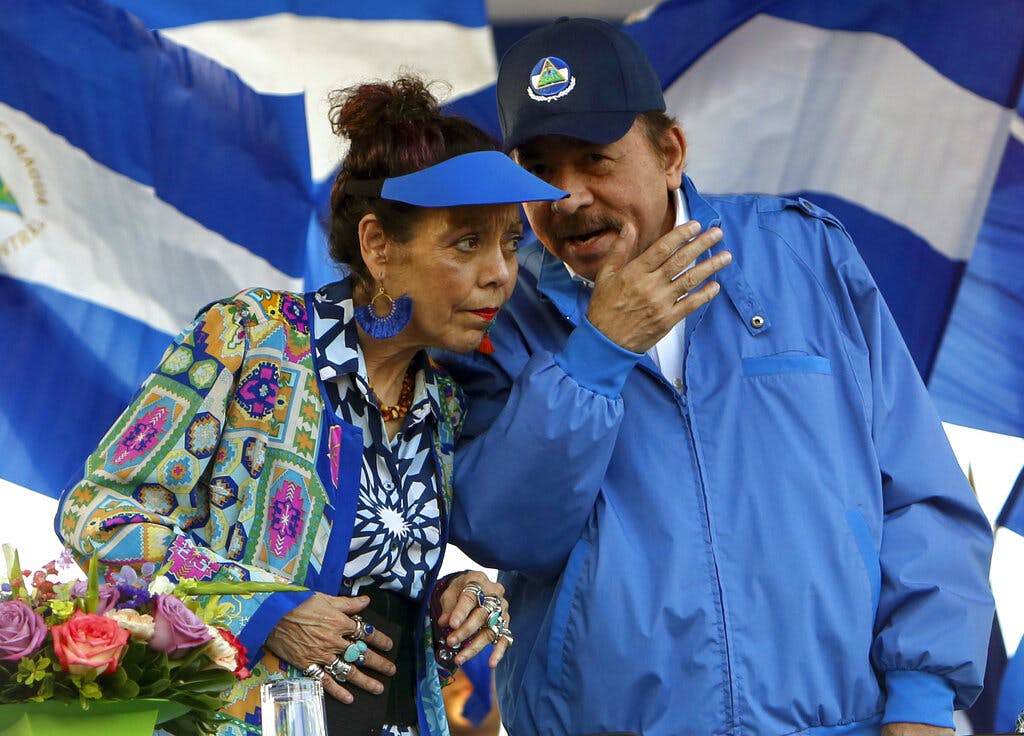State Department Ratchets Up Pressure on Nicaragua Following Invitation for Russian Troops
Last week, the left-wing government of Daniel Ortega authorized Russian troops, planes, and ships to enter Nicaragua to carry out “humanitarian aid, rescue and search missions in emergencies or natural disasters.”

American officials alarmed at the Nicaraguan president’s increasingly anti-Democratic antics and decision to welcome Russian troops on Central American soil are ratcheting up their diplomatic pressure with threats to exclude the country from a free trade agreement enjoyed by the rest of the region.
The senior director for Western Hemisphere Affairs at the National Security Council, Juan Gonzalez, said during an interview with Voice of America that the American government is reviewing whether to kick Nicaragua out of the Dominican Republic-Central America-United States Free Trade Agreement, or CAFTA, that gives it preferential access to U.S. markets.
“It is very hard to remove a country from CAFTA, but we have broad national security authorities to impose restrictions on any country for national security issues,” Mr. Gonzalez said.
Last week, while President Biden was hosting the Summit of the Americas in Los Angeles — which Nicaragua, Cuba and Venezuela were excluded from — the left-wing government of President Ortega authorized Russian troops, planes, and ships to enter Nicaragua to carry out “humanitarian aid, rescue and search missions in emergencies or natural disasters.”
“I think that there is a consensus that Nicaragua is heading in a direction that is worrying everyone in the hemisphere,no matter where on the political spectrum those governments stand,” Mr. Gonzalez said.
CAFTA was signed in 2004, and includes the United States, Costa Rica, El Salvador, Guatemala, Honduras, Nicaragua, and the Dominican Republic. The purpose of the agreement is to eliminate trade barriers and to expand trade opportunities throughout the region.
American officials also have expressed concerns about Mr. Ortega’s actions in the run-up to presidential elections in the country last year which he and his running mate and wife, Rosario Murillo, won with 76 percent of the vote.
The leading opposition candidate, Cristiana Chamorro, was charged with money laundering and arrested only hours after she announced she was running against Mr. Ortega. Other candidates, including Juan Sebastian Chamorro, Miguel Moro, and Arturo Cruz, also were detained or put under investigation.
In response, Secretary of State Blinken announced Monday that the Department of State will impose visa restrictions on 93 people “believed to have undermined democracy following Daniel Ortega’s illegitimate November 2021 re-election.
“The United States remains deeply concerned about the Ortega-Murillo regime’s unjust detentions of political prisoners and ongoing abuses against members of civil society,” Mr. Blinken said.
“To put all of the presidential candidates in jail to win an election is a signal that’s pretty dangerous for the rest of the region,” Mr. Gonzalez said.
In 2018, a citizen uprising against Mr. Ortega’s pension reforms left more than 320 people dead and thousands injured. It remains the worst wave of political violence in Latin America in three decades, according to political analysts. Nicaragua still holds more than 180 political prisoners who are being denied food, water, and medical care, according to the Department of State.
“The regime’s corrupt security and judicial systems arrested and prosecuted these civic leaders and human rights defenders for speaking the truth, practicing courageous journalism, defending their communities through NGO work, and publicly advocating for alternatives to the regime’s repressive rule,” Mr. Blinken said.
Mr. Gonzalez said that they would use every available resource to have an open dialogue with Mr. Ortega about releasing political prisoners and establishing policies that restore the democratic order.
“Otherwise, we will start to increase the pressure, but we will do it in a coordinated way with the countries of the region,” Mr. Gonzalez said. “The invitation to external troops, especially one that has invaded another country, is something that should concern everyone.”

